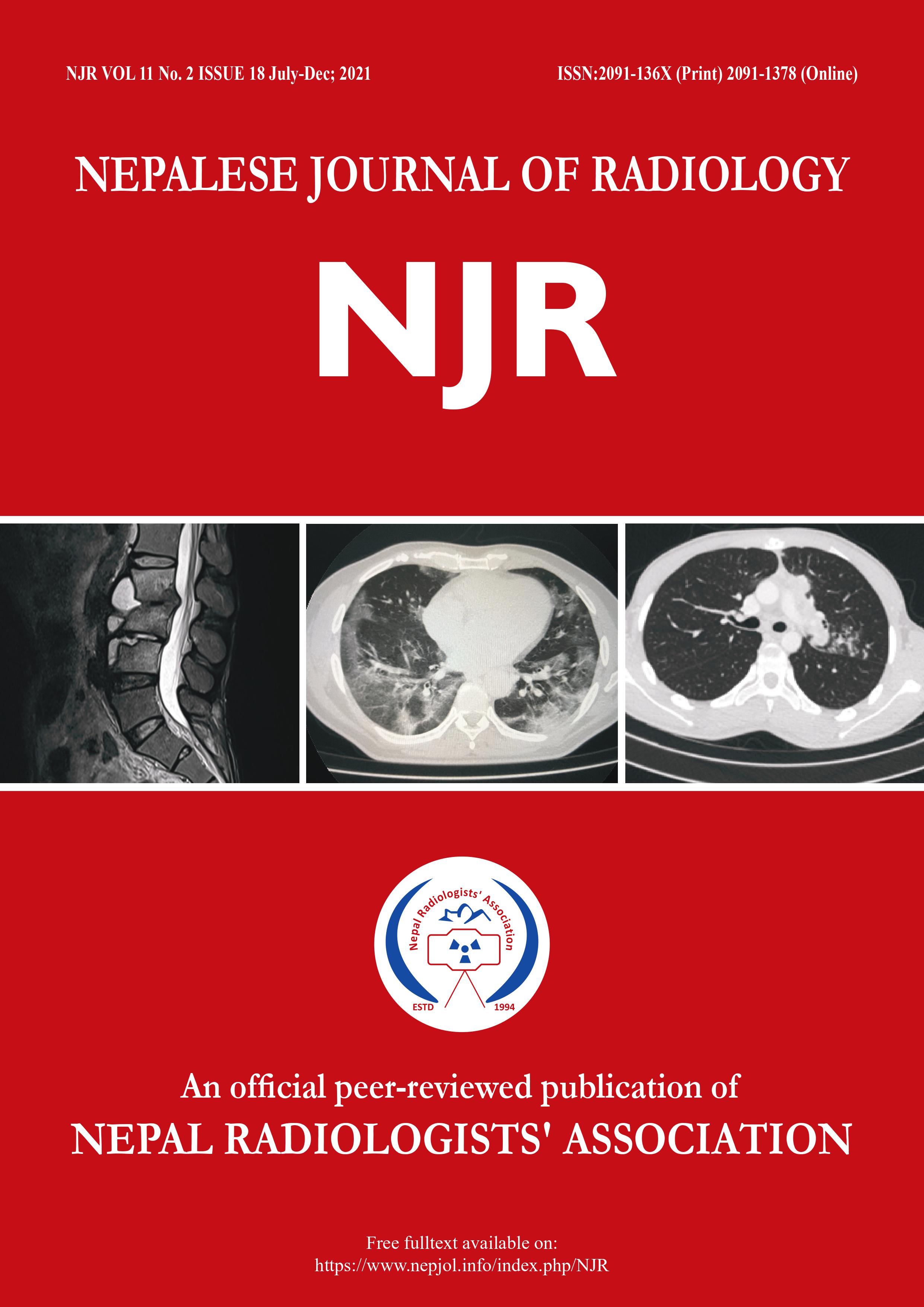Correlation of Amount of Cigarette Smoking with Thickness and Elasticity of Distal Femoral Cartilages using Sono-Elastography Techniques of Ultrasound, a Cross-Sectional Study.
DOI:
https://doi.org/10.3126/njr.v11i2.38205Keywords:
Cigarette smoking; elastography; femoral cartilage; ultrasound; thickness.Abstract
Introduction: Cigarette smoking is a well-known etiology for chronic musculoskeletal system disorders, like osteoarthritis, affecting the distal femoral cartilages. However, recent studies show protective effects of smoking against osteoarthritis. Ultrasound is an easily accessible and reliable imaging tool for the evaluation of the cartilages, measurement of their thickness, and tissue stiffness. This study seeks to objectively show the effects of smoking by affecting their knee joints’ cartilage and clarify whether it has a chondroprotective effect, or support the usual evidence that smoking is harmful at any cost.
Methods: This prospective cross-sectional study compares the thickness and elasticity of distal femoral cartilage in heavy, ordinary smokers and non-smokers using B-mode scanning and real-time strain elastographic technique of ultrasound respectively.
Results: Among 377 individuals with a mean age of 27.66 years, male predominance (70 %) and mean Body Mass Index (BMI) of 24.55, a higher proportion (50 %) of volunteers were ordinary smokers (pack years <20). Elasticity strain ratios were found to be significantly lower in heavy smokers in both sides’ distal femoral cartilages except in right lateral cartilage (p = <0.001) using Fisher’s exact test. Significantly lower thickness was noted in both cartilages of the right side (p <0.001) and left lateral cartilage (p = 0.001) among heavy smokers. After adjusting for the effects of age, sex, BMI, and occupation using one-way ANOVA, similar results were obtained.
Conclusions: Heavy cigarette smoking causes degradation of distal femoral cartilages by decreasing their thickness and elasticity.
Downloads
Downloads
Published
How to Cite
Issue
Section
License
Copyright (c) 2022 Nepalese Journal of Radiology

This work is licensed under a Creative Commons Attribution 4.0 International License.
This license enables reusers to distribute, remix, adapt, and build upon the material in any medium or format, so long as attribution is given to the creator. The license allows for commercial use.




